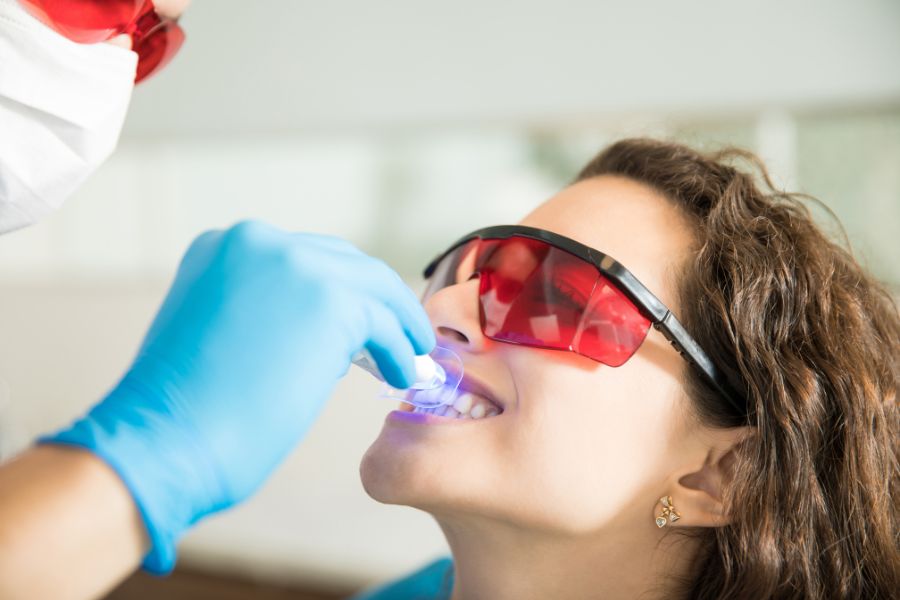1. Tooth Sensitivity:
Tooth sensitivity is a common side effect of teeth whitening. The peroxide in whitening products can temporarily irritate the nerves within the teeth, resulting in increased sensitivity to hot or cold temperatures. (Source: Colgate)
2. Gum Irritation:
Some individuals may experience gum irritation or sensitivity during or after teeth whitening. This can occur if the whitening gel comes into contact with the gums, leading to redness, soreness, or even mild swelling. (Source: American Dental Association)
3. Enamel Damage:
Although rare, overusing or misusing teeth whitening products can potentially damage the tooth enamel. Enamel is the protective outer layer of the teeth, and excessive or improper use of whitening agents can weaken it, making the teeth more prone to sensitivity and damage. (Source: Healthline)
4. Uneven Whitening:
Teeth whitening may result in uneven color distribution, especially if there are existing dental restorations such as fillings, crowns, or veneers. These restorations do not respond to whitening agents in the same way as natural teeth, leading to a mismatched appearance. (Source: MouthHealthy)
1. Consult with a Dentist:
Before starting any teeth whitening treatment, it is advisable to consult with a dentist. They can assess your oral health, identify any potential risks or concerns, and recommend the most appropriate whitening method for your specific needs.

